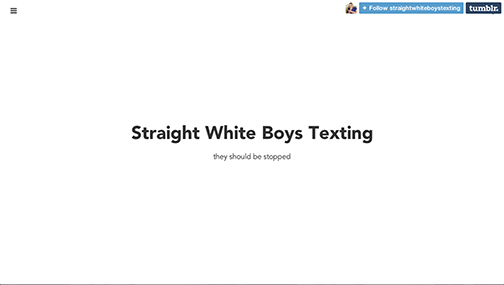
Opinion columnists Sabrina Gomez Shahawl and Marissa Ochoa debate social media embarassment resulting from exploited private conversations.
Nowadays, striking up a conversation with any stranger is as simple as a swipe to the right. This motion on popular apps such as Tinder allows for direct messaging with anyone who could be on the other side of the screen.
Let’s flip the screen to the potential everyday user—for privacy concerns, we will refer to them as Taylor and Britney.
Taylor messages Britney with, “I just quit smoking, want to be my new oral fixation?” Britney then screen shots this and puts it on the Internet for all her friends, family and strangers to view.
Although both Britney and Taylor signed up for the app with intentions of meeting new people, one perverted comment led to the public posting for something meant to be private.
But honestly, who’s to blame here?
Sabrina Gomez-Shahawi:
Social media has created vast opportunities for young people to make friends and find love on the Internet. There are several different apps and websites young people can interact on.
These different apps, some often through the comfort of anonymity, are allowing young people to cave into their vulnerabilities and open up.
This has lead to a trend for girls to post their conversations with boys on their Twitter, Facebook or Instagram profiles with the intention of humuliating the boys. There are even blogs, such as “Straight White Boys Texting,” where girls can post embarrassing messages sent to them by these guys.
“Girls are signing up for these sites and want the attention, so whatever guys message them, they shouldn’t be a surprise,” microbiology sophomore Kimberly Pelletier said. “If they don’t like what guys say through these direct messages, they should delete their apps instead of making fun of the guys and posting it on their Instagram, Twitter, Facebook, etc.”
Marissa Ochoa:
No one is saying that these individuals’ privacy rights aren’t being violated, but the reality here is sending messages, whether they be malicious, sexually explicit or funny, is completely consensual. What is then done with that information is the receiver’s decision.
In a perfect world, all conversations meant to be private would stay that way, but that is not always the case.
If I recall correctly, no one signs a confidentiality waiver before conversing with someone. Unless that happens, anything sent into the realms of social media must be done with caution.
“Pictures and conversations are permanent and if sent around, people will see it,” business and marketing sophomore Maddie Lieberman said.
SS:
There shouldn’t have to be a confidentiality agreement before striking up a conversation with someone. People should feel comfortable to communicate freely without the fear of their conversation ending up posted publicly for everyone on the Internet to see.
It’s really unfair when girls put guys on blast on the Internet and humiliate them after they worked up the courage to put themselves out there and send out messages. I’ve seen girls on my Twitter put up screenshots of a guy who messaged them “hey” on Facebook a bunch of times. In their screenshots, the guys’ names and pictures are visible.
Obviously, being messaged over and over by a guy is annoying and can be considered a form of harassment. However, it doesn’t make it right for the girl to post a screenshot of his messages on Twitter and make fun of him in front of everyone on the Internet. If she really has an issue with it, she should take legal actions or defend herself.
MO:
Is it unfair and morally wrong?
Yes.
However, the moral police doesn’t really have any power in this situation. If these included explicit pictures or videos that are shared with malicious intent, then, yes, legal action can take place. But unfortunately, screenshots of conversations are legal.
If somebody is being harassed, giving them the ability to post conversations reveals the true colors of the harasser and helps anybody else that may be harassed by that one person in the future.
Exposure like this is unfortunate for the sender, but I would rather have the sender be embarrassed than another victim be harassed.
“I would be embarrassed if certain private conversations of mine began to circulate, but if you’re sending it, you’re kind of an idiot for doing that,” undeclared sophomore Tim Rudrich said.
Today, privacy is becoming less and less sacred. There’s a line between what can and can’t be shared and many people are crossing it.
Because of vast amounts of online outlets people are at much higher risk when sharing personal information. Common courtesy calls for mutual confidentiality when it comes to sharable conversations. Unfortunately, not everyone has the same morals.
Although rights to confidentiality are left up for debate, it’s an individual’s responsibility to take caution when pressing send on a not-so-appropriate text message.









